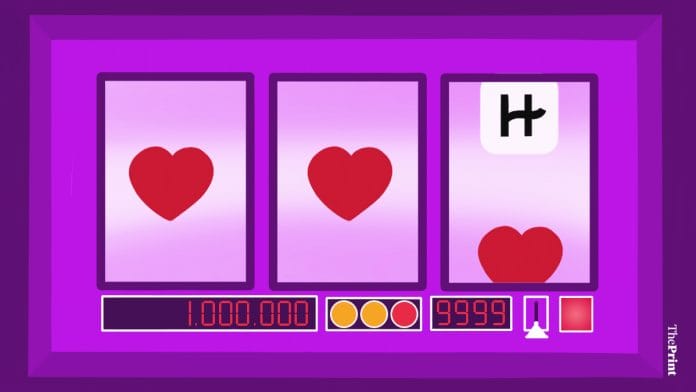Dating apps didn’t expand the romance pool—at least the illusion of it—they also widened the grey areas of cheating. Now, loyalty isn’t just about not sleeping with someone else; it’s also about resisting the urge to double-tap hot strangers online. Modern dating is like Sisyphus pushing his boulder—except the boulder is Hinge. Every time you think you’ve found ‘the one’, the algorithm shoves 50 more options in your face. Even the cretins with the depth of a puddle think they can do better. You know what they say: Just because someone isn’t playing field doesn’t mean they have stopped swiping on the players.
Take it on my authority—cheating is rampant, it’s all over the Instagram explore page. If feeling secure in relationships was ever easy, it’s certainly not in a world where everyone is chronically online. The guy posting lovey-dovey selfies with his girlfriend is also sliding into anyone and everyone’s DMs. Everyone copes with this lawless dating landscape in their own way.
Some go full detective, printing out their partner’s sleazy chats and presenting them as cold, hard evidence in the crowded courtrooms of dim-lit restaurants. Armed with the high-tech Apple AirTag, some girlfriends are tracking each and every move of their boyfriends. Some prefer the zen life—flipping their partner’s unlocked phone face-down, choosing sweet denial over a premature heart attack.
What is cheating?
This is the era of moral loopholes—betrayal comes in many flavours. Enter Gen Z vocabulary. There’s ‘micro-cheating’ for those who swear flirting doesn’t count. ‘Emotional cheating’ is when someone in a committed relationship chooses to have heart-to-hearts with someone who isn’t their partner. There’s also ‘cushioning’—keeping romantic backup options on standby while still in a relationship, just in case things go south (think situationships).
Giving off a fake single vibe online is called ‘soft cheating’. And everything involving secret cruising on dating apps, undisclosed finstas, illegitimate Snapchat streaks, etc., fall under ‘e-cheating’. The complex one? Delulu cheating. It’s when you catch your partner cheating on you in your dreams. Modern-day Freuds are having meltdowns analysing this one—even your subconscious isn’t safe from betrayal in this dystopia.
Confused 20-somethings are posting lengthy essays on Reddit titled ‘Is this cheating?’. The most popular answer? If you have to ask, it probably is. The manosphere is popularising ‘hacks’ to avoid being cheated on— ‘keep your girlfriend away from a full-time job’. To bridge the gap of deranged, straight women influencers are asking the female community to become their partner’s doormat—cook, clean, keep him satisfied, don’t make him beg. Those scarred in their relationships are helping them identify, and expose the cheater. You’d be surprised how many tech tools are specifically designed to catch the unfaithful.
The paranoia is real
A techie friend in Mumbai was getting nowhere after repeatedly confronting his girlfriend about her oddly cosy relationship with her male best friend. She would always deny it. So, he used the power of Open-Source Intelligence (OSINT) to uncover the lies. By creating Google search alerts for both the girl and the third person, he was notified whenever new search results appeared about them. He also set up webpage monitoring tools to track every edit on her blog portfolio.
The level of detail deserves a salute—he was even able to monitor the culprit duo’s grocery orders, and hotel and travel bookings. After a year of this operation, he finally compiled his findings in a neat document and attached it to his scathing breakup email. He may be forever scarred by love, but if intelligence agencies are hiring, they might want to check his résumé.
At this point, I wish I were making things up. The cheating paranoia is real. So what if I am conveniently single? Every time my situationship’s follower count went up overnight, I’d dread losing the favourite spot on his roster. Call me monogamy-minded, but can’t I be the only girl he’s unserious about?
Views are personal.
(Edited by Zoya Bhatti)






